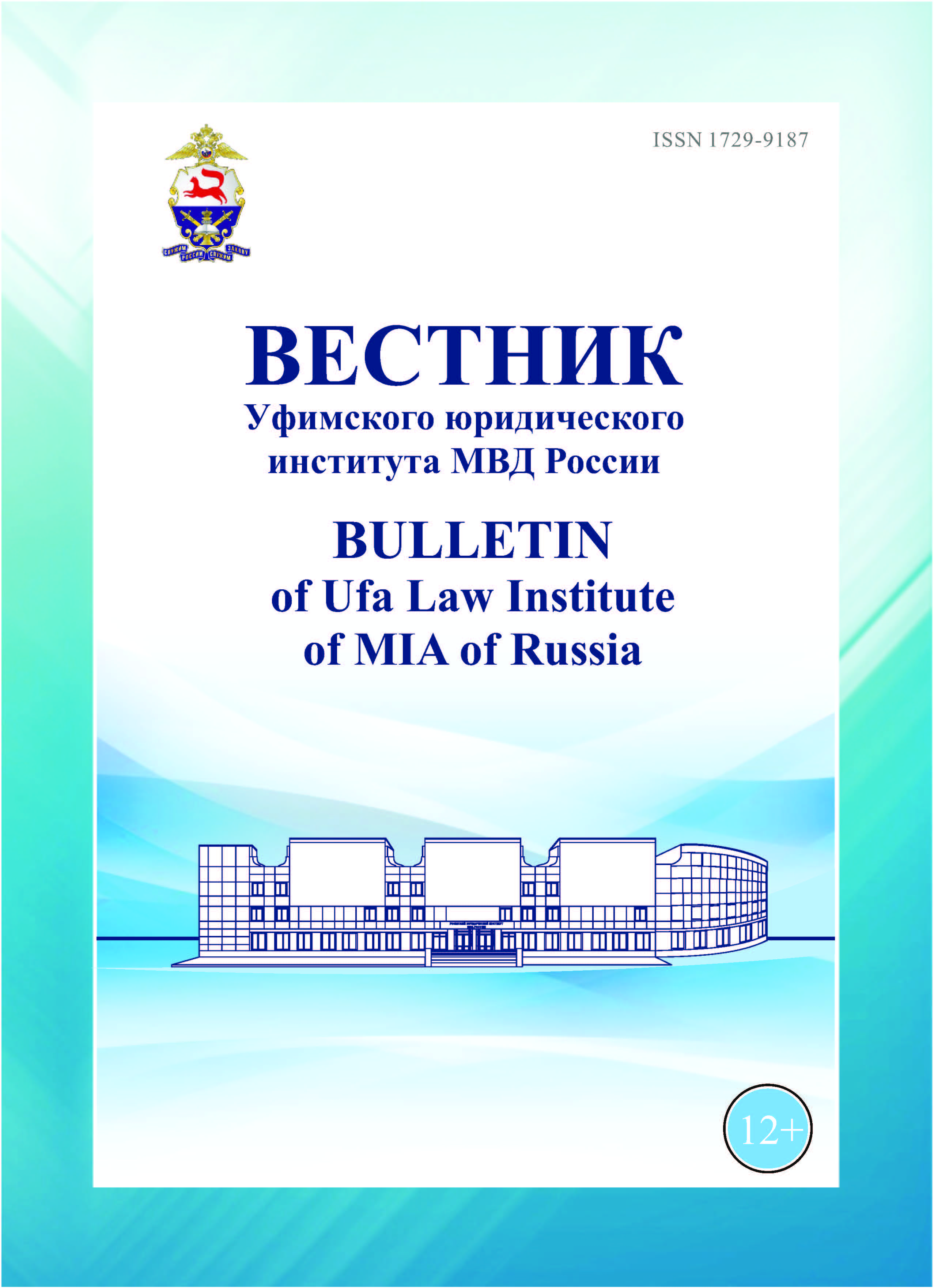graduate student from 01.01.1922 to 01.01.1926
UFA, Russian Federation
UDC 343.98
The article examines the features and some legal aspects of the operational-search activities “removing information from technical communication channels” and “obtaining computer information” using documentary telecommunication networks [1, p. 184–189]. It describes the process of implementing a set of technical means to ensure operational-search activities on documentary telecommunication networks, including some related legislative initiatives. An analysis of two types of operational-search activities, their essence, features and legal aspects of implementation is carried out. This paper analyzes some stages of the implementation of information systems aimed at increasing the efficiency of operational-search activities on documentary telecommunication networks from the end of the 20th century to the present day. In addition, the period of formation and related social phenomena characteristic of the development of modern technologies both in operational-search activities and in general are studied. Particular attention is focused on the relevance and prospects of such measures in operational-search activities, and to the improvement of legislative norms regulating their application [2, p. 21]. Based on the analysis of current legislation, the author examines some problematic issues, provides the opinions of scientists studying this area, and also offers an interpretation of some legal aspects.
system of operational-search measures, documentary telecommunication, operational-search activities, removal of information from technical communication channels, obtaining computer information, conceptual characteristic of measures, communication channels
1. Petrov V. V. Conducting operational search measures to remove information from technical communication channels in relation to persons convicted of extremist and terrorist crimes // Bulletin of Voronezh Institute of the Federal Penitentiary Service of Russia. 2024. No. 1. P. 184–189. (In Russ.)
2. Zakhartsev S. I., Ignashchenkov Yu. Yu., Salnikov V. P. Operational-search measures in the 21st century: monograph. St. Petersburg University of the Ministry of Internal Affairs of Russia, Academy of Law, Economics and Life Safety. St. Petersburg: University Foundation, 2006. 427 p. (In Russ.)
3. Bronnikov I. A. Modern trends and prospects of the information society // Bulletin of Moscow University. Series 12: Political Sciences. 2017. No. 6. P. 7–26. (In Russ.)
4. Dzhigan O. V. Philosophical aspects of using network technologies // Economic and social-humanitarian studies. 2015. No. 1 (5). P. 110–115. (In Russ.)
5. Kryukov Yu. S., Yarygin A. G. SORM in the networks of Internet providers // Information protection. Inside. 2006. No. 3 (9). P. 70–73. (In Russ.)
6. Omelin V. N., Kvitko A. V. Information technologies in operational-search activities of internal affairs bodies // Scientific portal of the Ministry of Internal Affairs of Russia. 2011. No. 4 (16). P. 68–73. (In Russ.)
7. Lagutochkin A. V. Obtaining computer information: issues of theory and practice // Bulletin of the Academy of the Investigative Committee of the Russian Federation. 2023. No. 1 (35). P. 75–81. (In Russ.)
8. Kotukhov M. P. Conversion of the results of operational-search activities into evidence: dis. ... Cand. of Law. Kazan, 2001. 231 p. (In Russ.)
9. Kornaukhova N. G., Katkov S. V. Obtaining computer information: problems of theory and practice // Bulletin of East Siberian Institute of the Ministry of Internal Affairs of Russia. 2020. No. 1 (92). P. 182–191. (In Russ.)
10. Osipenko A. L. New operational-search measure “Obtaining computer information”: content and principles of implementation // Bulletin of Voronezh Institute of the Ministry of Internal Affairs of Russia. 2016. No. 3. P. 83–90. (In Russ.)
11. Cryptographic methods of information protection and VPN in IP networks / P. M. Movsarova, H. R. Vizirova, M. A. Biysultanova et al. // Trends in the development of science and education. 2019. No. 56-2. P. 55–58. (In Russ.)
12. Batoev V. B. Crimes committed with the use or application of information and telecommunication technologies: methods of their commission and quantitative characteristics // Law and order: history, theory, practice. 2023. No. 3 (38). P. 101–112. (In Russ.)
13. Ryazanov P. A. Technical reconnaissance of side electromagnetic radiation and interference from computing equipment as a type of operational-search activity // Scientific digest of the East Siberian Institute of the Ministry of Internal Affairs of Russia. 2023. No. 1 (19). P. 47–52. (In Russ.)
14. Epifanov S. S. Integration of scientific knowledge as a factor in the development of operational-search activities and the means of ensuring it // The criminal-executive system of the Russian Federation: issues of execution of criminal penalties, implementation of probation measures, interaction with public authorities and civil society institutions: a collection of abstracts of speeches and reports of participants in the International scientific and practical conference dedicated to the 90th anniversary of the foundation of the Academy of the Federal Penitentiary Service of Russia. Ryazan: Academy of Law and Management of the Federal Penitentiary Service, 2024. P. 149–154. (In Russ.)
15. Ivanov I. V. Scientific and technological progress and criminal legislation of Russia // Agrarian and land law. 2022. No. 8 (212). P. 142–143. (In Russ.)









